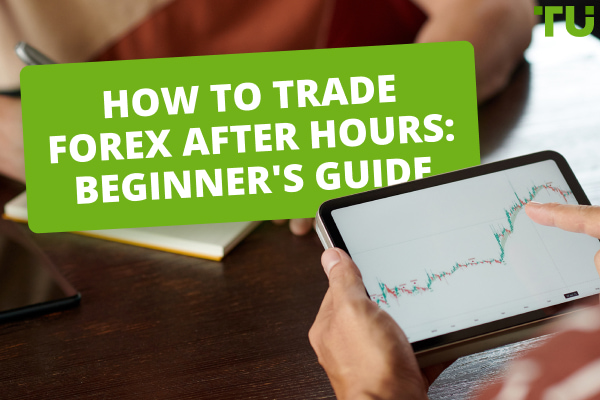What Are The Disadvantages Of Trading With Offshore Brokers?
While you can use the benefits of unregulated brokers, you should be aware of 6 risks you are taking:
-
Risk of Fraud: Less regulation leaves traders more exposed to fraudulent behavior
-
No Protection for Traders: Fewer avenues for legal recourse in case of losses
-
Withdrawal Issues: Delays and complications in withdrawing funds
-
Market Manipulation: Brokers may create misleading trading conditions
-
Litigation risks: Unfamiliar or difficult legal process for disputes with broker
-
Reputational Risk: Professional traders’ standing may suffer with offshore brokers
When you’re selecting a broker to begin your trading journey with, you’ll find that some brokers are registered within the country that most of their traders reside in, while other brokers will be registered offshore, and subject to different regulations and legal requirements. So why do some brokers choose offshore registration?
For a start, offshore brokers can usually offer clients accounts that are easier and faster to open with a lower minimum deposit, provide higher leverage and lower costs, are bound by less restrictions that would usually hinder certain strategies, and sometimes can offer additional features like micro-accounts or welcome bonuses. Despite the many benefits, offshore brokers also come with some major drawbacks. In this article, we’ll be looking at 6 of the main risks of using an offshore broker.
-
What is an offshore trading account?
An offshore trading account involves investing globally through a brokerage account situated in an offshore jurisdiction. This allows individuals to access international markets and potentially benefit from specific regulatory and tax advantages offered by the chosen offshore location.
-
What is an offshore broker? Are they legal?
An offshore broker is a trading platform located in an offshore jurisdiction (Cayman Islands, Belize, Saint Vincent and the Grenadines, for example). The legality of offshore brokers varies, and is subject to the regulatory framework of the specific jurisdiction. Traders should carefully assess the broker's adherence to legal standards before engaging in transactions.
-
Can US traders use offshore brokers?
The permissibility of US traders using offshore brokers depends on regulatory constraints and the policies of both the brokers and relevant authorities. Generally, offshore brokers may have restrictions for regulatory reasons, while other brokers may accept U.S. clients (as a rare exception to the rule).
-
Are offshore brokers regulated?
Typically no, and that is one of the major advantages they offer over onshore brokers – though also can be the biggest disadvantage for traders. Offshore brokers have no legal obligation to be regulated other than in the country where they are registered, if any regulation there exists. While some adhere to robust regulatory frameworks, others may operate with less oversight.
Who regulates offshore Forex brokers?
Offshore brokers are typically regulated by financial authorities in jurisdictions with less strict restrictions, such as the Cayman Islands, Belize, Germany, Switzerland, Singapore, Hong Kong, Panama, The Republic of Seychelles, Nevis, and Mauritius.
The financial authorities within those jurisdictions include:
-
Belize International Financial Services Commission (IFSC)
-
Seychelles Financial Services Department (SFSA)
-
Saint Vincent and the Grenadines Islands Financial Regulatory Authority (SVG FSA)
-
Financial Services Commission BVO (FSC BVI) of Virgin Islands (Great Britain)
-
Securities Commission of The Bahamas
Forex traders often open accounts with offshore brokers to have better conditions (for example, higher leverage, or because of more favorable commissions). There is no error in this initially.
However, it’s important that you check who your broker is regulated by before registering with them. We have compiled a list of our favorite offshore Forex brokers. Our top 3 are as follows:
| Broker | Location | Regulator |
|---|---|---|
Belize |
IFSC |
|
Seychelles |
FSA |
|
Seychelles |
FSA |
Best Forex brokers

6 risks of trading with offshore brokers
Before considering opening an account with offshore brokers, it's crucial to be aware of the potential risks that may accompany such ventures. Understanding these risks is vital for making informed decisions and safeguarding your investments.
Risk of Fraud
Engaging with offshore brokers exposes you to an increased risk of fraudulent activities. Some offshore jurisdictions may have lax regulations, making it easier for unscrupulous entities to operate. Offshore brokers may operate in locations with less stringent oversight and fewer regulatory controls compared to brokers in more established financial hubs. This lack of stringent regulation creates an environment where unscrupulous individuals or entities may exploit loopholes and engage in fraudulent activities.
Furthermore, inadequate investor protections and opaque ownership structures may leave you more vulnerable to fraudulent schemes, and open to exploitation by fraudsters who conceal their identities and activities. The perception of lax oversight in offshore jurisdictions can attract fraudulent brokers looking to exploit unsuspecting traders. Scams such as Ponzi schemes, pump-and-dump schemes, or false investment opportunities can proliferate in these environments.
As a rule, brokers with offshore registration do not participate in investment protection programs offered by international organizations such as, for example, The Financial Commission At the same time, the broker does not offer its own guarantee and risk insurance programs.
No Protection for Traders
The lack of protection for traders with offshore brokers stems from the often limited regulatory oversight in offshore jurisdictions, and can pose risks. Unlike brokers operating in well-regulated economies, offshore brokers often lack robust investor protection mechanisms. In the absence of stringent regulations, traders face increased vulnerability to malpractices such as market manipulation, fraud, or financial instability within the brokerage.
Furthermore, the absence of established regulatory bodies in offshore locations diminishes the avenues available for traders to seek recourse in case of disputes or unethical behavior by the broker. This lack of protection amplifies the importance of exercising due diligence before engaging with offshore brokers, and emphasizes the need for traders to carefully assess the broker's reputation, regulatory status, and legal avenues available for addressing grievances.
Withdrawal Issues
Withdrawal issues pose a significant risk when dealing with offshore brokers. Traders may encounter delays or complications in accessing their funds, leading to uncertainty and frustration. The regulatory differences in offshore jurisdictions may contribute to difficulties in the withdrawal process, as these brokers might not adhere to the same standards as their counterparts in more heavily regulated environments.
Market Manipulation
Offshore brokers may engage in market manipulation by exploiting the relatively lax regulatory environments in their respective jurisdictions. This manipulation can take various forms, such as artificially inflating or deflating prices, creating misleading trading conditions, or executing trades to induce false market movements. The absence of stringent oversight allows these brokers to employ such tactics without immediate repercussions.
The risk here lies in the potential for you as a trader to make decisions based on distorted market conditions, leading to financial losses. Market manipulation can create a false sense of market trends, triggering you to act on inaccurate information. This not only undermines the integrity of the trading environment but also compromises its fairness and transparency. As a result, using offshore brokers may lead to an increased risk of making uninformed or misguided investment choices.
Litigation risks
Litigation risks associated with using offshore brokers arise from the limited legal recourse available to traders in offshore jurisdictions. If disputes emerge between you and offshore brokers, the legal processes in these jurisdictions can be complex, time-consuming, and expensive. The lack of familiarity with local legal systems, coupled with potential language barriers, further complicates matters.
Reputational Risk
If you’re a professional trader or manage trading/investment funds for others, using an offshore broker introduces a reputational risk. The association with offshore brokers can negatively impact your perceived credibility and trustworthiness. Clients and stakeholders may view engagement with offshore brokers as a potential compromise on adherence to higher regulatory standards, potentially eroding your professional reputation. The decision to utilize offshore brokers requires careful consideration to balance potential financial benefits with the possible impact on professional standing and reputation
How to protect capital when working with offshore brokers?
To safeguard capital when working with offshore brokers, consider the following strategies:
-
Diversify: Spread your investments across different asset classes and geographical regions. Diversification helps minimize risks associated with a single market or broker, reducing the impact of any adverse events
-
Start small: Begin with a modest investment to test the waters and assess the reliability of the offshore broker. This approach allows you to gauge their performance, withdrawal processes, and overall trustworthiness before committing more substantial capital
-
Research: Conduct comprehensive research to verify the legitimacy of the offshore broker. Use reliable sources to check regulatory status, read client reviews, and assess the broker's track record
-
Stay Informed: Stay updated on regulatory developments in the offshore jurisdiction where the broker operates. Understanding the regulatory landscape helps you assess potential risks and adapt your strategy accordingly
-
Secure Payment: Choose secure and reputable payment methods for deposits and withdrawals. Opt for methods that offer additional layers of security, such as two-factor authentication, to protect your funds from unauthorized access
Picking an unregulated Forex broker can be a tough field to navigate. Luckily, Traders Union has got you covered, with our list of 10 Best Unregulated Forex Brokers for 2024.
Conclusion
In conclusion, navigating the realm of offshore brokers requires a nuanced approach, balancing potential benefits with inherent risks. While you may seek these brokers for advantageous terms such as lower costs and higher leverage, it's crucial to acknowledge and address the associated pitfalls. Fraud, inadequate trader protection, withdrawal issues, market manipulation, litigation risks, and reputational threats underscore the importance of informed decision-making.
To protect your capital, employ strategies like diversification, starting small, thorough research, staying informed, and utilizing secure payment methods. Traders Union recommends offshore brokers, including RoboForex, IC Markets, and Exness, offering a starting point for those venturing into this complex landscape.
Team that worked on the article
Jason Law is a freelance writer and journalist and a Traders Union website contributor. While his main areas of expertise are currently finance and investing, he’s also a generalist writer covering news, current events, and travel.
Jason’s experience includes being an editor for South24 News and writing for the Vietnam Times newspaper. He is also an avid investor and an active stock and cryptocurrency trader with several years of experience.
Dr. BJ Johnson is a PhD in English Language and an editor with over 15 years of experience. He earned his degree in English Language in the U.S and the UK. In 2020, Dr. Johnson joined the Traders Union team. Since then, he has created over 100 exclusive articles and edited over 300 articles of other authors.
The topics he covers include trading signals, cryptocurrencies, Forex brokers, stock brokers, expert advisors, binary options. He has also worked on the ratings of brokers and many other materials.
Dr. BJ Johnson’s motto: It always seems impossible until it’s done. You can do it.
Mirjan Hipolito is a journalist and news editor at Traders Union. She is an expert crypto writer with five years of experience in the financial markets. Her specialties are daily market news, price predictions, and Initial Coin Offerings (ICO). Mirjan is a cryptocurrency and stock trader. This deep understanding of the finance sector allows her to create informative and engaging content that helps readers easily navigate the complexities of the crypto world.










